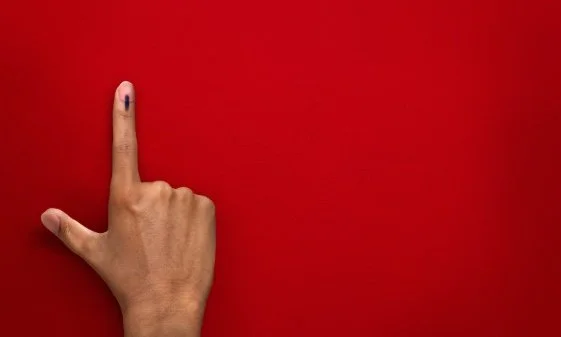BJP Sought Deletion of 80,000 Muslim Voters in One Constituency: The Reporters’ Collective
Submissions Accused Entire Bloc of Voters of Being Non-Citizens
September 28, 2025
The Bharatiya Janata Party (BJP) sought the removal of nearly 80,000 Muslim voters from Bihar’s Dhaka constituency electoral roll by claiming they were not Indian citizens, according to an investigative report by The Reporters’ Collective. The claim was made through formal submissions to election authorities during the state’s Summary Intensive Revision (SIR) of voter lists.
The Reporters’ Collective says it reviewed documents that show that the BJP’s efforts involved multiple written complaints submitted to both the Electoral Registration Officer (ERO) in East Champaran district and the Chief Electoral Officer (CEO) of Bihar.
One submission was filed by Dhiraj Kumar, the personal assistant to sitting BJP MLA Pawan Jaiswal, while another was signed in the name of a party functionary using the BJP’s state letterhead.
The largest of these demands, submitted just before the deadline on Aug. 31, listed 78,384 voters for deletion, identifying each by name and electoral identification number. The letter claimed all individuals had been added to the SIR draft list without mandatory documents such as domicile certificates, and asserted that they were not Indian citizens.
All of those named for deletion were Muslim, including schoolteachers, booth-level officials and elected local representatives.
In Fulwaria Gram Panchayat, the village of MLA Jaiswal, local sarpanch Firoz Alam was quoted saying his entire family was listed. He questioned how he could contest panchayat elections if not a citizen.
The first mass deletion petition was submitted by Dhiraj Kumar, bearing his name and BJP credentials. He acknowledged the submission but refused to discuss it further, saying he would arrange a response from the MLA, said the Collective.
Despite repeated follow-ups, no such interview took place. When reached directly by phone, Jaiswal dismissed questions, asking, “Why is Delhi interested in our local matters?”
A second submission, sent to the CEO in Patna, was written on official BJP Bihar letterhead and signed by “Lokesh,” identified as the party’s election in-charge for Tirhut region. BJP’s district election manager, Govind Srivastav, told the Collective no such person worked for the party.
Sunil Sahni, BJP’s organisational head in Dhaka, acknowledged the party had sought deletion of non-citizens, including alleged migrants from Nepal and Bangladesh, but could not confirm who had signed the letter.
The BJP has not filed any complaints alleging forgery of these submissions, despite the use of party letterhead and claims involving thousands of voters, the Collective noted. One constituency-level political worker told the Collective that the names were likely extracted using software filters targeting Muslim-sounding names or by systematically isolating them booth by booth.
During the SIR process, booth-level BJP agents began submitting daily complaints from Aug. 19 onward, according to the Collective. Each Form 7 petition included the statutory declaration under Section 31 of the Representation of the People Act, 1950, which criminalises knowingly false claims, it said, adding that no explanation was given for why these voters were deemed ineligible, as required on the form.
In Chandanbara village, which has a Muslim majority according to residents, over 5,000 voters were targeted. Randhir Kumar, the booth-level officer for polling station 273, said many of those named contacted him fearing their deletion, but he had received no instructions from higher officials to act on the complaints.
Electoral officers acknowledged receiving the BJP’s submissions.
The ERO of Dhaka said he had issued receipts for the petitions but did not provide documentary proof when asked, said the Collective. Regarding the letter claiming 78,384 voters were non-citizens, he said the documents would be verified during routine checks. He added that bulk deletion requests would not be accepted.
The effort in Dhaka came amid confusion over new SIR procedures in Bihar. The ECI had amended rules mid-process, allowing enumeration forms to be submitted without supporting documents, which led to chaotic implementation by booth-level officers, according to the Collective. Despite calls from civil society groups for more transparent data sharing, the ECI published draft rolls in locked formats, making scrutiny difficult, it noted.
Under ECI rules, deletions require ground verification by officers and a quasi-judicial review by the ERO. Though booth-level agents can recommend up to 10 changes daily, the ERO holds final discretionary authority.
A political consultant with over a decade of experience in Bihar was quoted saying that each party typically submits a few thousand names for review before elections, but described the Dhaka submissions as “unprecedented.”
The Dhaka seat, bordering Nepal, has a significant Muslim-Yadav population and a history of electoral swings between the BJP and Rashtriya Janata Dal (RJD). Jaiswal, who won in 2010 and again in 2020, is set to face RJD’s Faisal Rahman, a former MLA and son of two-time Congress legislator Motiur Rahman. A third contender, L.B. Prasad of Jan Suraaj, is expected to draw votes from the BJP’s base.
Jaiswal has claimed that the RJD also attempted mass voter deletions, saying the opposition party submitted a list of 40,000 alleged false Hindu voters. He has not shared a copy of the complaint and declined repeated interview requests, said the Collective, adding that opposition leaders did not confirm or deny whether such a list was submitted.
The final list of registered voters in Dhaka constituency is scheduled to be released on Oct. 1.
You have just read a News Briefing by Newsreel Asia, written to cut through the noise and present a single story for the day that matters to you. Certain briefings, based on media reports, seek to keep readers informed about events across India, others offer a perspective rooted in humanitarian concerns and some provide our own exclusive reporting. We encourage you to read the News Briefing each day. Our objective is to help you become not just an informed citizen, but an engaged and responsible one.

